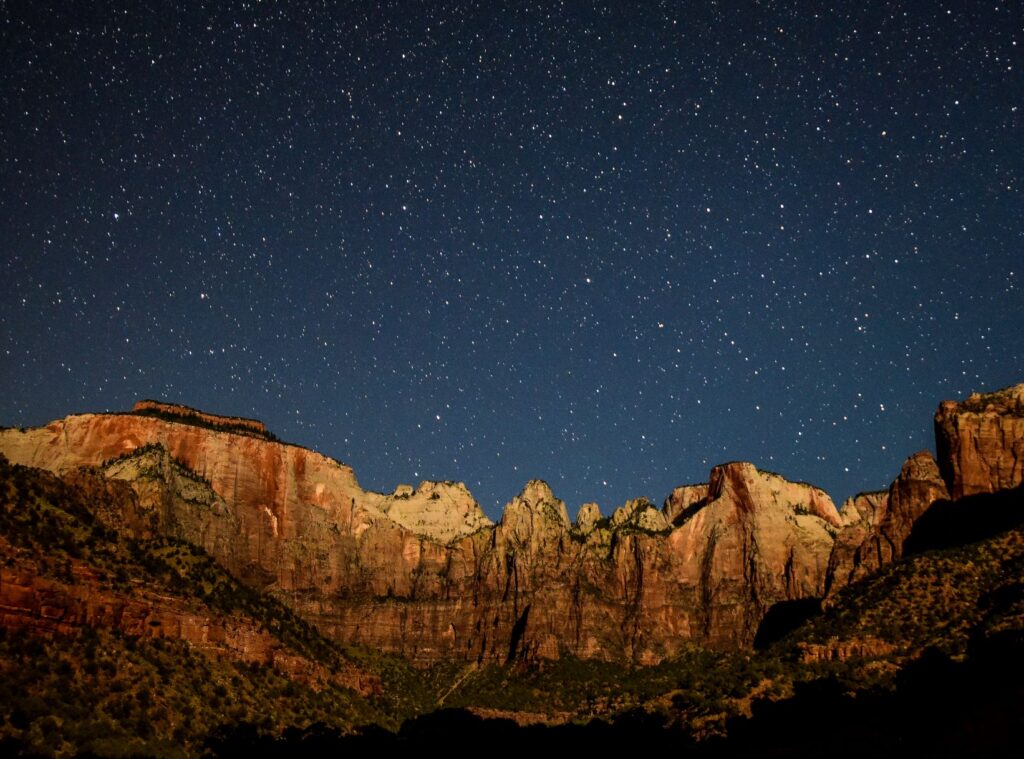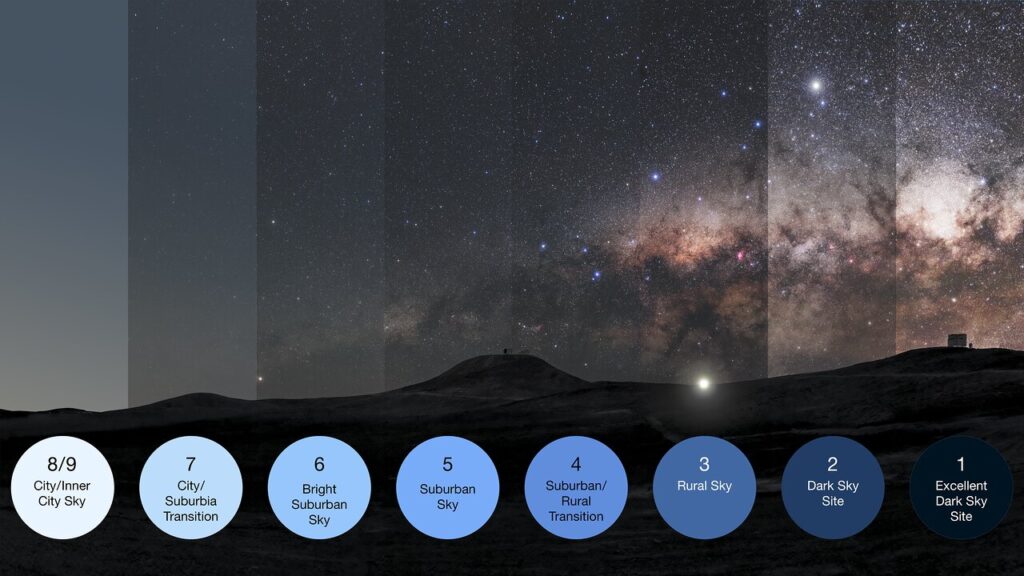AWARENESS
Ayaan Atif, CEO COSMOYAGE
September 29th, 2023
The night sky is turning into the light sky
The allure of the night sky, a canvas adorned with stars and cosmic wonders, has captivated human imagination for millennia. But, regrettably, our astronomical companion has been increasingly marred by the relentless radiance of urban life. The urgency to address this growing issue calls for concerted and immediate action.
Gazing upwards on a clear night, we are afforded a profound sense of humility. The stars, beyond number, cast their shimmering light upon us, and in that moment, we feel both minuscule and interconnected with the universe's boundless mysteries. The night sky invites us to peer into the depths of space, stirring curiosity about what lies beyond. The inky vastness that holds the deepest secrets of the cosmos has, however, slipped beyond the view of the unaided eye, veiled by the insidious veil of light pollution. Urban centers cast a perpetual sky glow, allowing only a faint scattering of stars to penetrate the luminous haze. My own journey into stargazing began with limited optical instruments, yet the sight of Saturn and Jupiter instilled in me a sense of awe, akin to a scene from a science fiction epic.
"I bet people's lives would be very different if they spent every evening sitting outside and gazing at the sky. You realize there are more significant things than what people do all day when you gaze into eternity "-Calvin & Hobbes
As I lay in the stillness of the night, visions of distant planets, such as Saturn with its majestic rings, fill my thoughts. It is disheartening to think that many may never have the privilege of witnessing such celestial marvels. The collective underestimation of the profound beauty held not only by our earthly realm but also the celestial canopy above is alarming.

The Temples and Towers of the Virgin in Utah's Zion National Park stand against the stunning canvas of the night sky.
(Photo credit: Avery Sloss, Zion National Park, St. George News)
You may have observed a noticeable decline in the number of visible stars over time. According to a 2021 NPR report, 99% of individuals residing in the United States and Europe now inhabit areas with light-polluted skies, while 80% of those in North America no longer have the opportunity to view the Milky Way from their residential locations. This situation has persisted for many years, yet it stands in stark contrast to the conditions experienced for millions of years prior. The question arises: What impact does the vanishing night sky have on our collective psyche? Lenkatesan and Baretine’s letter said:
"This represents far more than mere loss of environment: we are witnessing loss of heritage, place-based language, identity, storytelling, millennia-old sky traditions and our ability to conduct traditional practices grounded in the ecological integrity of what we call home. … As most cyclical indicators involving migratory birds/animals, weather patterns, pollinators and native plants are increasingly altered with climate change, the skies effectively represent a last stand of heritage, calendaring, language and food sovereignty for many global communities."
Contrasting Nightscapes: On the left, Toronto's urban sprawl blankets the night sky in a sea of light pollution, obscuring celestial wonders. On the right, a pristine night sky reveals its true majesty when free from city lights. Witness the profound impact of light pollution in this captivating image.
The consequences of light pollution are far-reaching. Shockingly, up to 50% of artificial light is lost, resulting in an annual cost of $3.3 billion and the emission of 21 million tons of CO2. The environmental implications are profound, requiring the planting of an estimated 875 million trees annually to offset this carbon footprint. Furthermore, light pollution adversely affects various species and ecosystems, with fireflies standing out as a deeply impacted species. Formerly, I believed that fireflies used their light solely for navigation in the dark, but their luminescence serves a multitude of purposes, including communication, mate attraction, and predator deterrence. Artificial lighting, however, hampers firefly mating patterns, leading to reduced offspring production annually. Additionally, light pollution negatively affects human health, contributing to issues such as sleep deprivation, headaches, and a host of other unpleasant health conditions.
Astronomers have proposed a new word to describe their sadness over the loss of dark nights. The word they propose is noctalgia (sky grief), from an earlier word solastalgia, the lived experience of negatively perceived environmental change. In late August 2023, in an open letter to the journal Science, astronomers Aparna Venkatesan of the University of San Francisco and John C. Barentine of Dark Sky Consulting wrote:
“We offer here the term noctalgia to express ‘sky grief’ for the accelerating loss of the home environment of our shared skies, a disappearance felt globally and deserving its own field of study of ‘mycology’ [the study of night matters].”
The onus to address these issues lies with humanity, and the power to rectify them is well within our grasp. Light pollution is a primary issue that can be mitigated within a relatively short period if we all unite and take simple yet effective steps. These actions encompass minimizing outdoor lighting, preventing light trespass, and adopting low-wavelength bulbs. Observing the exteriors of homes, it is evident that many feature excessive lighting to enhance aesthetics, yet this often results in unnecessary light scattering into the sky. The installation of motion sensors to activate lighting when necessary conserves energy and capitalizes on modern advancements. Furthermore, we may petition for the institution of "Earth Day" celebrations twice a year, where the night sky is cherished and experienced without the intrusion of light pollution. Such occasions can inspire communities to appreciate the pristine beauty of the cosmos and continue the effort to minimize light pollution.

This image vividly exemplifies the Bortle scale, a metric assessing light pollution's effect on night skies. Moving from left to right, it demonstrates the escalating visibility of stars and celestial objects in pristine dark sky environments as opposed to urban settings (Photo Credits: ESO)
The Bortle Dark Sky Scale, devised by amateur astronomer John Bortle, provides a means to assess the extent of artificial light in an area, distinguishing between dark sky and light-polluted regions on a scale of 1 to 10. The most light-polluted cities often surpass level 6, such as Lahore (Bortle 7) and Karachi (Bortle 8-9). Conversely, a few locations worldwide have achieved a Bortle rating of 1, signifying the need for protection. Organizations like the International Dark Sky Association (IDA) play a pivotal role in preserving dark spaces, safeguarding over 110,000 square kilometers of pristine skies in 51 countries. Their mission is to ensure the continued appreciation and conservation of the starry night sky as a shared heritage benefiting all living beings.
In conclusion, it is paramount to recognize that through collective action and community engagement, we have the capacity to protect our night sky. Let us examine our surroundings and identify areas where change can be enacted through dialogue. This endeavor is not only for the benefit of our generation but also for the generations that follow. It is our duty to preserve the natural wonders that light pollution threatens to obscure. By working together, we can reclaim the splendor of the celestial heavens and restore the profound beauty of the night sky for all to appreciate.
" the stars should appear one night in a thousand years, how would men believe and adore; and preserve for many generations the remembrance of the city of God which had been shown! But every night come out these envoys of beauty, and light the universe with their admonishing smile.”
― Ralph Waldo Emerson
Subscribe To Our Newsletter
Receive amazing space news and stories that are hot off the press and ready to be read by thousands of people all around the world.
